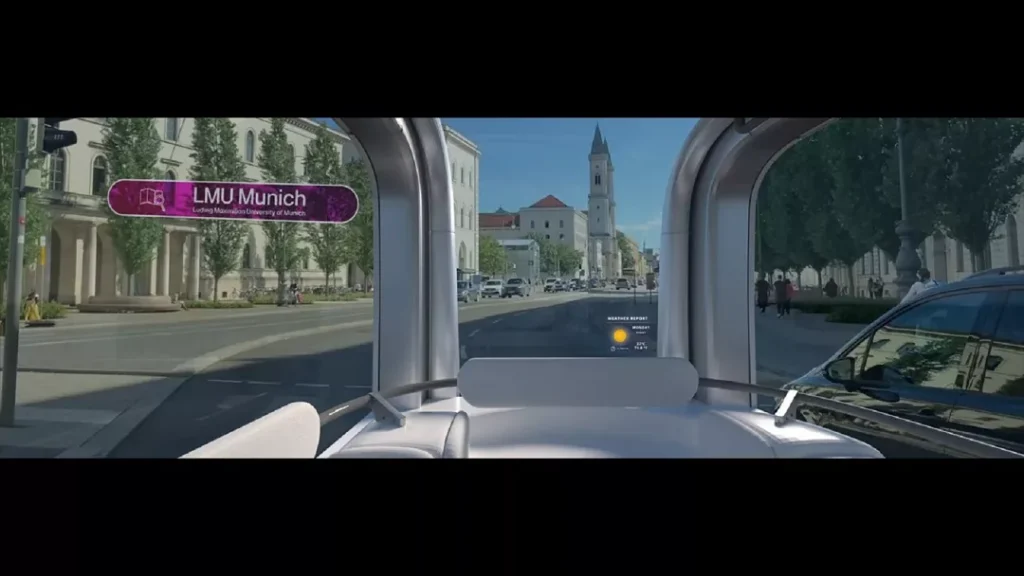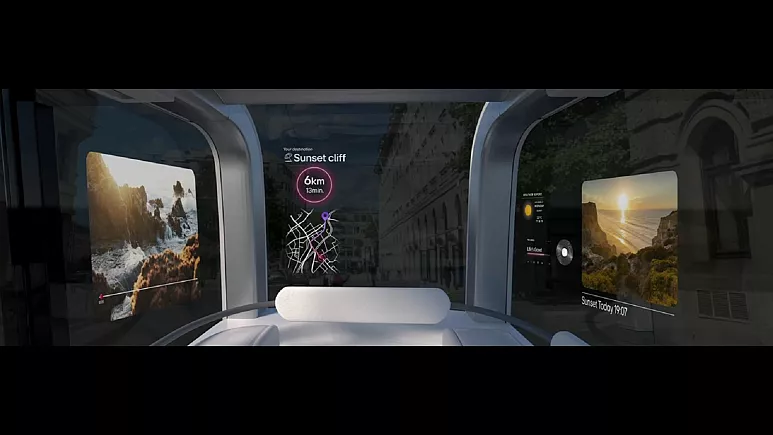Will the advent of self-driving cars give us more time to take care of ourselves? According to LG, the South Korean electronics giant, the answer is yes. In clear contrast to the current technical focus of the automotive sector, the company presented in Munich its vision of the driverless car as a tailor-made high-tech refuge, where you can use your commute time to take better care of yourself.
A shelter that moves (alone)
At the moment the technology underlying autonomous vehicles is mainly focused on the engineering aspects necessary to make them move and "orient themselves" independently (the latest field of research is give them night “vision”. to improve driving), but experts and companies have been hypothesizing the possible uses of these new means of transport for some time.

Volvo was among the first companies to focus on the concept of autonomous vehicle such as “lounge car”, starting to study volumes and form factors for what will be real "rooms on wheels". Hyundai with his “mobile living space” has increased the use of cars as a refuge. Today LG also looks with optimism at what these vehicles will be able to offer in terms of sensorial experience once the mechanical part is consolidated.
During the IAA Mobility, one of the most important automotive fairs in the world, the CEO of LG William Cho said it was time to shift the perspective from the mere physical transformation of vehicles to the role they will play in improving the quality of time spent on the road.
Cars of the future as personalized spaces

The vision of the Korean company is based on three pillars: Transformability, Explorability e Relaxability. The car of the future will be, as mentioned, a sort of "personalized digital refuge" capable of easily adapting to different needs and occasions of use. A mini restaurant room for intimate dining? A traveling office where you can conduct business in private? A movie theater to enjoy a film on the commute? Everything is possible, there are many ideas.
Thanks to augmented reality and advanced artificial intelligence, the relationship with the vehicle will be more interactive, with voice assistants recommending content based on the duration of the journey and windshields transformed into OLED displays which provide location and route information.
And of course, the driving experience must be relaxing, with sensory stimuli such as films, massages, meditative music and much more, accessible via the infotainment system.
Technology to mature, but the road is paved
However futuristic, these scenarios are not pure fantasy according to LG, which is already working on the necessary technologies, such as electric propulsion systems developed together with Magna International. Of course, Level 5 fully automated cars are still a long way off, but electrification will inevitably accelerate the transition to driverless vehicles.

Services such as Cruise's shuttles and Tesla's driver assistance functions already exist today, demonstrating the giant strides made towards total autonomy. There are many challenges to overcome, but LG is convinced that mobility must focus on experientiality to offer added value to users.
In summary? Between relaxation, interactive entertainment and personal care, the driverless four-wheel journey will increasingly be a happy refuge in the hectic daily routine. An undoubtedly seductive prospect, which contributes to making the technological path towards the cars of the future more "human".


